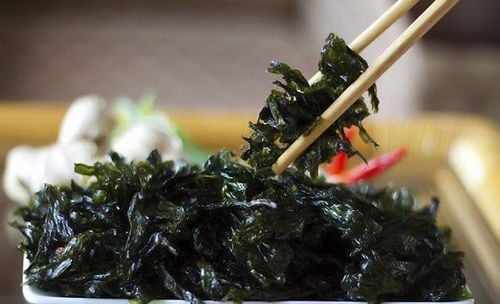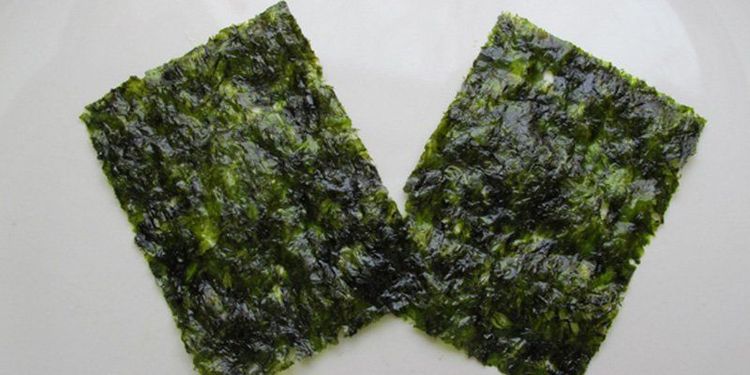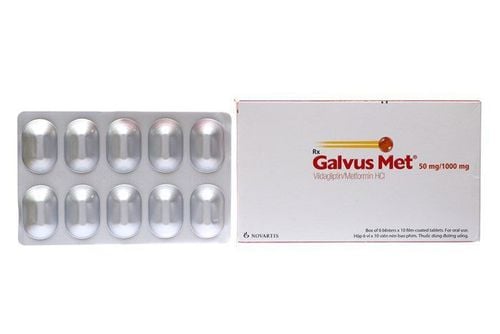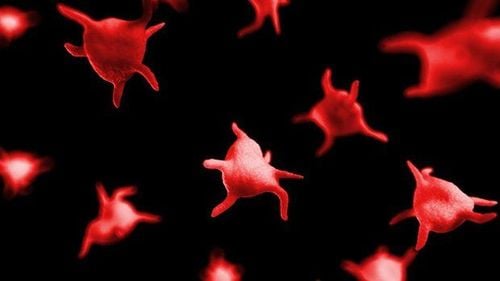Seaweed is popular not only for its unique and delicious taste but also for the many health benefits it offers. But does dried seaweed retain all of its nutrients? This article will help you find out.
1. Seaweed
Seaweed has been used as both food and medicine for centuries, with various types ranging from larger kelp to smaller varieties. Today, seaweed is even more commonly used, especially in the cuisine of Asian cultures and coastal regions. It is typically available in dried form or with added special flavors. Eating seaweed also provides a range of valuable nutrients, making dishes healthier.
Dried seaweed undergoes a process of harvesting, processing, cleaning, and preparation following food safety standards to ensure the health of consumers.
2. Nutrients in dried seaweed
Dried seaweed contains many beneficial nutrients for health, such as carbohydrates, fiber, vitamins A, C, B2, and minerals.
Most of the calories in this seaweed come from carbohydrates, with 3g per serving. However, you will need more than that in your meal plan, so consider using seaweed with a food that contains healthy carbohydrates, such as rice, to meet your daily needs of 225 to 325 grams. This way, you will also consume 1g of protein, which is equivalent to 1.7 to 2.1% of your ideal intake.
2.1. Dried seaweed contains a high amount of sodium.
Is dried seaweed beneficial?
Dried seaweed contains 312 mg of sodium per serving. For a healthy person, up to 2,300 mg of sodium can be consumed, which accounts for 13.5% of the daily sodium intake. However, if you have high blood pressure or heart disease – or are at risk of developing heart disease – it is recommended to limit your sodium intake to 1,500 mg.
Seaweed naturally contains a high amount of sodium, so if you have high blood pressure, it’s advisable to avoid eating seaweed or consult with your doctor before adding it to your diet to reap the full benefits of dried seaweed. Because it easily absorbs all kinds of minerals, seaweed can be contaminated with harmful heavy metals. To avoid consuming contaminated seaweed, choose seaweed that is guaranteed to be harvested from non-polluted seas.

2.2. Dried seaweed contains a very high amount of iodine.
Eating one serving of dried seaweed provides 6,720% of the recommended daily intake of iodine. While your body needs sufficient iodine for healthy thyroid function, too much can be harmful. Consuming one serving of seaweed occasionally will not harm your health, but eating too much of this food regularly can lead to the development of thyroid-related diseases or worsen existing thyroid conditions. If you or a family member has a thyroid condition, you should consult a doctor about the necessary daily iodine intake.
2.3. Dried seaweed also contains other nutrients.
Including dried seaweed in your diet provides a good source of vitamin B-6, providing 30% of the daily recommended intake; this vitamin is crucial for brain health and function. This food also provides 22% of the potassium and 17% of the iron your body needs daily. Additionally, dried seaweed helps supplement small amounts of calcium, magnesium, phosphorus, zinc, copper, vitamin A, thiamine, riboflavin, vitamin E, niacin, and vitamin B-12.
2.4. Antioxidants in seaweed
Dried seaweed contains antioxidants that may be beneficial for your health. A study published in a food journal found that dried seaweed provides more antioxidants than heat-processed seaweed. Antioxidants help protect every cell in the body from damage caused by free radicals and other environmental stresses.
Moreover, in dried seaweed, especially brown seaweed, a compound found in brown seaweed, which is often processed and consumed in dried form, may protect against radiation. In laboratory animal studies, eckol, a tannin molecule, protects blood cells, repairs DNA damage in immune cells, and promotes the development and reproduction of immune cells. This molecule also acts as an anti-inflammatory and antioxidant. Similarly, a type of seaweed called blue-green algae may offer anti-inflammatory and antibiotic benefits. Seaweed has been considered a nuisance and a threat to coral reefs in Hawaii.

3. Some health benefits of dried seaweed
Dried seaweed will provide several health benefits.
- Dried seaweed helps balance blood pressure in the body with over 90 minerals derived from seawater, combined with beneficial nutrients, especially fatty acids, to regulate blood pressure effectively.
- Detox: Soak your bathwater with dried seaweed to immerse yourself in a refreshing, therapeutic experience, feeling as if you're at the beach. Seaweed detoxifies the ocean, and similarly, seaweed baths can help cleanse your body. Seaweed also replenishes minerals such as iodine and potassium, for it draws water and impurities through your skin. The iodine in the seaweed soak may also help with weight loss by boosting thyroid hormone production. Seaweed is rich in vitamin K, which supports healthy adrenal function. When dissolved in water, seaweed releases a gel layer that coats your skin. After about 45 minutes, the gel dissolves, signaling that your seaweed bath therapy is complete.
- Seaweed soup is very beneficial for those showing signs of cardiovascular and urinary system-related diseases.
- Seaweed is good for digestion due to its content of Alga Alkane mannitol, which helps nourish beneficial gut bacteria.
Seaweed has anti-inflammatory effects due to its compound content, which includes carbohydrates. - Seaweed helps reduce stress during menopause. The compounds in dried seaweed can help women in the menopausal stage manage hot flashes, improve their mood and overall quality of life.
Dried seaweed is very good for health, but that doesn't mean we should consume it in excess. To minimize the potential side effects of dried seaweed, it's recommended to consume about 100 grams of seaweed per day. Moreover, you should incorporate seaweed into small meals to ensure that you fully benefit from the nutrients it provides to your body. If you consume too much dried seaweed, it could lead to the risk of hyperthyroidism or other medical conditions such as metabolic disorders and digestive issues. Additionally, you should choose reputable seaweed products to fully benefit from its nutritious properties. When making your choice, also be sure to carefully read the information on the product packaging.
Please regularly visit the Vinmec website (www.vinmec.com) to stay updated with useful healthcare information and leave your details if you need consultation or support from a doctor!
To arrange an appointment, please call … or make your reservation directly HERE. You may also download the MyVinmec app to schedule appointments faster and manage your reservations more conveniently.
References: livestrong.com, healthyeating.sfgate.com













